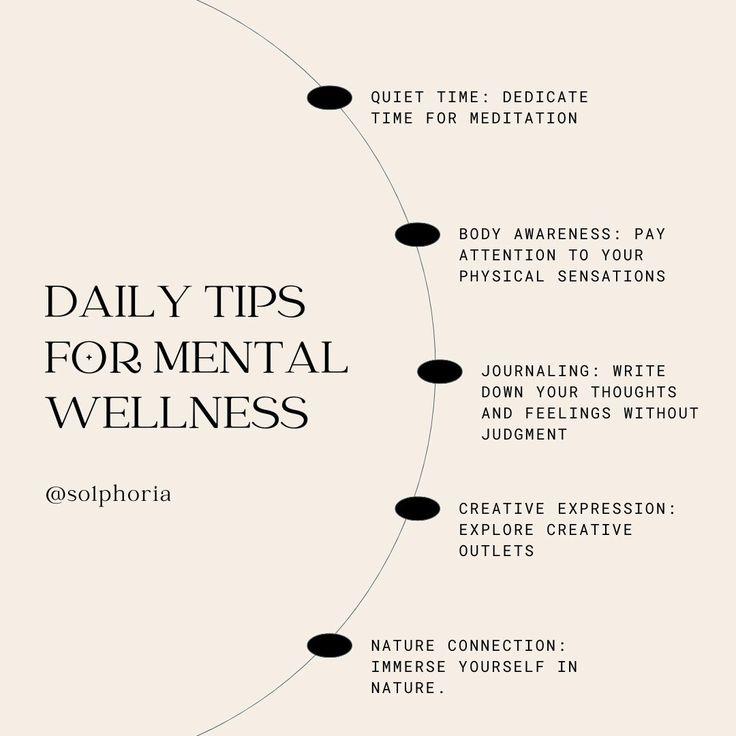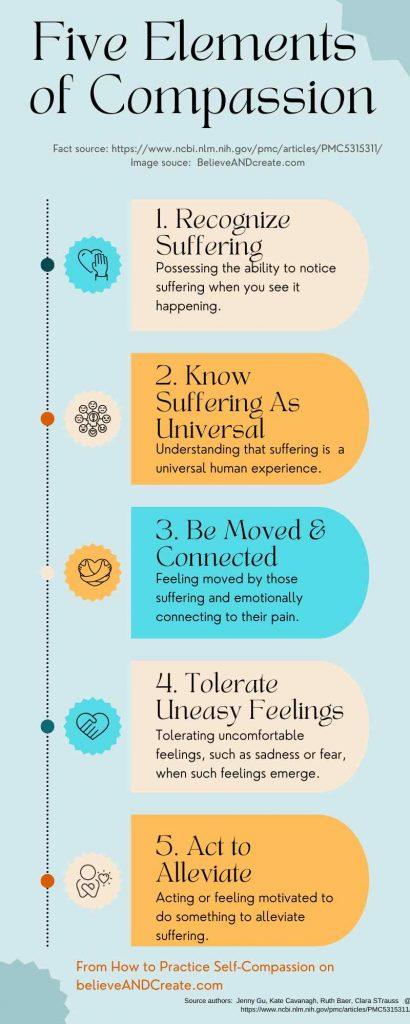In today’s fast-paced world, where the pressures of daily life can often feel overwhelming, nurturing our emotional well-being is more crucial than ever. Yet, amidst the hustle and bustle, we frequently overlook a simple yet powerful tool that can significantly enhance our mental health: self-compassion. Embracing self-compassion involves treating ourselves with the same kindness, understanding, and patience that we would offer a dear friend. This practice is not just a fleeting act of self-kindness; it is a transformative approach that fosters resilience, reduces stress, and promotes a healthier relationship with ourselves. As we delve into the importance of self-compassion, we will explore how cultivating this gentle practice can profoundly impact our emotional well-being, empowering us to navigate life’s challenges with greater ease and grace. Join us on this journey to discover how embracing self-compassion can be a vital cornerstone for a more balanced and fulfilling life.
Cultivating a Gentle Inner Voice: Embracing Self-Kindness for Emotional Resilience
Developing a gentle inner voice is akin to nurturing a lifelong friendship with yourself. It involves acknowledging and embracing your imperfections with kindness rather than criticism. This self-compassion is not just a feel-good exercise; it’s a powerful tool for building emotional resilience. When you treat yourself with understanding and patience, you lay the groundwork for a more stable and healthy emotional landscape. Consider the following practices to foster a kinder relationship with yourself:
- Mindful Awareness: Observe your self-talk. Is it supportive or judgmental? Becoming aware is the first step to change.
- Practice Self-Forgiveness: Accept that mistakes are part of being human. Instead of dwelling on them, learn and move forward.
- Celebrate Small Wins: Regularly acknowledge your achievements, no matter how minor they seem. This builds a positive narrative.
Creating a table of affirmations can be an effective tool to reinforce positive self-dialogue. Here is a simple example to guide you:
| Situation | Gentle Response |
|---|---|
| Feeling Overwhelmed | “I am doing my best, and that is enough.” |
| Made a Mistake | “Mistakes help me learn and grow.” |
| Comparing to Others | “I am unique, and my journey is my own.” |

Recognizing Shared Humanity: How Understanding Imperfection Strengthens Well-Being
In the journey of self-compassion, one crucial realization is that imperfection is not only inevitable but also a shared experience. Embracing this truth helps foster a sense of connection with others, as it reminds us that everyone faces challenges and struggles. Recognizing our shared humanity allows us to extend kindness to ourselves and others, which is a vital component of emotional well-being.
By acknowledging that no one is perfect, we can begin to dismantle unrealistic expectations and self-criticism. This understanding paves the way for self-compassion and resilience. Here are some ways to cultivate this mindset:
- Practice Empathy: Try to see situations from others’ perspectives, understanding their emotions and experiences.
- Accept Mistakes: Embrace errors as learning opportunities rather than failures.
- Celebrate Diversity: Appreciate the differences and unique qualities in yourself and others.
| Practice | Benefit |
|---|---|
| Mindful Breathing | Reduces stress and increases emotional awareness |
| Journaling | Enhances self-reflection and understanding |
| Gratitude Lists | Boosts mood and promotes positive thinking |
Incorporating these practices into your daily routine can help you build a more compassionate view of yourself and others, ultimately strengthening your emotional well-being.

Mindful Awareness in Self-Compassion: Practicing Presence to Enhance Emotional Health
Embracing mindful awareness in the journey of self-compassion can transform how we relate to our emotions. When we practice being present, we learn to acknowledge our feelings without judgment, creating a nurturing space for healing and growth. This practice not only aids in reducing stress but also strengthens our emotional resilience. To cultivate this presence, consider the following steps:
- Pause and Breathe: Take a moment to focus on your breath. This simple act can ground you in the present and provide clarity.
- Acknowledge Emotions: Identify what you are feeling without labeling it as good or bad. Recognize it as part of the human experience.
- Practice Kindness: Treat yourself with the same compassion you would offer a dear friend. Use gentle words and remind yourself that it’s okay to feel.
For those who find structure helpful, consider incorporating the following elements into your daily routine:
| Activity | Time Needed | Benefits |
|---|---|---|
| Meditation | 10 minutes | Reduces anxiety, improves focus |
| Journaling | 15 minutes | Clarifies thoughts, releases emotions |
| Gratitude Practice | 5 minutes | Boosts positivity, enhances mood |

Practical Steps to Foster Self-Compassion: Building a Foundation for Lasting Well-Being
Embracing self-compassion is a journey that begins with actionable steps, fostering a nurturing relationship with oneself. Here are some practical ways to cultivate this essential trait:
- Mindful Awareness: Start by recognizing your thoughts and emotions without judgment. Practice mindfulness techniques such as meditation or deep-breathing exercises to stay present and aware of your inner dialogue.
- Self-Kindness: Treat yourself with the same kindness and care that you would offer to a friend. Replace self-critical thoughts with supportive and understanding ones, especially during difficult times.
- Common Humanity: Remind yourself that everyone experiences challenges and setbacks. Understanding that you are not alone in your struggles can help reduce feelings of isolation and foster a sense of connection.
Implementing these practices can significantly enhance your emotional well-being. Consider the following table that outlines the potential benefits of incorporating self-compassion into your daily life:
| Practice | Benefit |
|---|---|
| Mindful Awareness | Reduces stress and increases emotional resilience |
| Self-Kindness | Boosts self-esteem and nurtures self-worth |
| Common Humanity | Fosters empathy and enhances social connections |
By integrating these steps into your life, you create a solid foundation for self-compassion, paving the way for a more balanced and fulfilling emotional existence.








































